Timothy Noah appeared on The Bat Segundo Show #458. He is most recently the author of The Great Divergence.
Listen: Play in new window | Download
Condition of Mr. Segundo: Holding onto the remains of his wallet.
Author: Timothy Noah
Subjects Discussed: The 1984 “Morning in America” ad, why the American public gets suckered into the American Dream panacea, the Kuznets curve, the decline of the bank teller, Obama’s 2012 State of the Union speech, closing the skills gap as the present Democratic position for increasing jobs, the WPA, high school graduation rate decline and skilled labor demand in the 1970s, universal early education, the high school movement, Richard Vedder’s notion of janitors with PhDs, college tuition being priced out of reach for the middle crisis, the 1% vs. the 99%, the American inability to grapple with income inequality, overseas jobs, Germany’s ability to hang onto its manufacturing sector, the decimation of the American labor movement, Alan Blinder’s ideas about an increase in skilled overseas jobs, the Lewis Powell memo, Bryce Harlow, Wal-Mart’s war upon unions, the dismal dregs of union culture in 2012, Occupy Wall Street and anti-activist regulations, Walter Reuther, the gender gap in higher education and with job income, decline of the male median income, closing the gender gap in income, sexism’s strange legacy, how women have exempted themselves from the great divergence, how immigration developments during the 20th century impacted 21st century labor, Paul Samuelson’s views on immigration, the benefits of unskilled labor, high school dropouts and declining wages, the recent Mexican immigration dropoff, checking up on Jim and Ann Marie Blentlinger, Bob Davis and David Wessel’s Prosperity, upward mobility and government jobs, the collapse of the US Postal Service, the brief benefits of computerization, being honest about the decline in upward mobility, and the expiration date of American exceptionalism.
EXCERPT FROM SHOW:
Correspondent: What about overseas jobs? I mean, two-thirds of all the people who made or sold iPods in 2006, as you point out in the book, were located overseas — most in production jobs. One of your solutions in the “What to Do” section at the end is to import more skilled labor. What of these Apple production jobs? I think I’m returning to what we were talking about earlier, about the difference between skilled labor and unskilled labor and moderately skilled labor. Surely, there needs to be some sort of infrastructure in place. Some patch till we actually get to this great skills gap solution which we seem to be talking about. I mean, it just seems to me that we’re trying to fight a very difficult problem with a form of idealism that is just incompatible with that reality.
Noah: Well, it’s very hard to compete globally for low skilled jobs. Because it’s a race to the bottom. You end up engaging in wage competition with some of the poorest countries in the world and that’s not going to make anybody prosper. If you look at a country like Germany, they’ve managed to hang onto their manufacturing sector. But the way they’ve done it is they have gone after the highly skilled manufacturing jobs. Of course, they also have a much more healthy labor movement. Here in the United States, we’ve had the labor movement been decimated or down and out. 7% of all employed workers. So another part of the solution is to rebuild the labor movement. I’m not saying that it’s going to be easy to address these problems. But in talking about ways to address them, I decided there was really very little point in pretending that tiny little solutions were going to do much. I think it’s time to start a discussion about some of the more ambitious things we can do.
Correspondent: But as you also note, “If you have a job that you can perform from home, it’s worth asking yourself whether an English speaker could perform the job tolerably well from halfway around the world at one thirtieth the pay.” Do you think that America has the obligation to give everybody a job? That that might actually be the solution in some way? Or do you think the labor force really needs to revert to its inherent skills? Or skills that they can actually acquire to get those jobs? I think I’m trying to get an answer from you in terms of whether it’s actually the corporations’ fault or whether it’s education’s fault or whether it’s the people who are unskilled — whether it’s their fault.
Noah: Well, I don’t know whose fault it is, per se. I mean, I think our workers need to acquire those skills one way or the other. And anything we can do to encourage that would be good. Because offshoring is a real problem. Although interestingly, the projections from here forward are that offshoring will have a bad impact on our economy. But it won’t continue probably to have a very bad impact on income inequality. And that’s because those other countries are now coming after the skilled jobs. And it will be very interesting politically to see how that plays out. There are a lot of affluent people who, when you talk about other countries eating our lunch in manufacturing, they say, “Well, we need free trade. You have to have capital flow across borders. Otherwise, we won’t have prosperity.” Well, I wonder if they’ll still be saying the same thing when suddenly you have, for example, American radiologists competing with radiologists overseas. You’ve already got a bit of that. And there are any number of very highly paid jobs that could be performed offsite. And Alan Blinder, an economist at Princeton, he says that he actually thinks that slightly more of the offshore jobs of the future will be skilled rather than unskilled.
Correspondent: Wow. Well, in 1971, Lewis Powell wrote a memo: “The American economic system was under attack from Communists, New Leftists, and other revolutionaries,” as well as “perfectly respectable elements of society.” So this memo results in this tremendous flurry of pro-business lobbying from organizations and so forth. Various consumer-oriented laws are killed through this effective lobbying. And that was forty years ago. Now pro-business lobbying today is arguably more pronounced than then. You point out in the book the figure — that the Chamber of Commerce spent $132 million in 2010. As you point out, not a single labor union could be found among the top twenty lobbyists. So how then can any pro-labor organization make a serious dent with these particular states? I mean, what hope is there for a modern day Walter Reuther in this post-Taft-Hartley age?
Noah: Well, it is true that the corporate power in Washington has vastly increased. And it increased not just because of the Powell memo, but really throughout the late ’60s and the 1970s, you had corporations absolutely flipping out at the rise of the regulatory state and counter-culture politics and Ralph Nader. And one person I write about in the book a great deal is Bryce Harlow, who is best known as a White House aide in the Nixon White House, where he was kind of a good guy. He was trying to keep Nixon honest. Failed at that, but he was considered one of the few honorable men in the Nixon White House. That’s all true. But he had a separate role where he spent most of his career post-1960. And that was as the Procter & Gamble representative in Washington DC. In 1961, when he came to work for Procter & Gamble, there were just a handful of corporate representatives in Washington DC. And Harlow looked around and thought, “We need troops here.” And he started going around the country and evangelizing and giving speeches saying, “We need to build up corporate power in Washington.” And one of the things I really like about Harlow is that he didn’t mince words. He identified the enemy as a movement towards greater equality. Sometimes people say, “Well, what does the rise of corporate influence in Washington have to do with equality?” Well, Harlow himself made the connection. And he succeeded. And Lewis Powell wrote that memo in ’71. Succeeded. Over time, corporations were bestirred to increase their presence in Washignton. Increase their lobbying. And they get a lot more done actually through lobbying than they do through campaign contributions. And as a result, you saw a change in our politics. It hurt the consumer movement. And it hurt the general movement towards greater equality. So, yes, that makes the task a lot more difficult. But I don’t think there is a bigger, more important challenge to liberalism right now than to find a way to rebuild the labor movements somehow.
Correspondent: Do you have any ideas on this? Because it’s pretty decimated and gutted. As you point out, the Walmart situation is terrible.
Noah: Yes. In part of the book, I have a narrative about the attempt to unionize a Wal-Mart in Colorado. And the extent to which the deck is stacked against labor is not to be believed. It is literally true that nobody has ever managed to unionize a Wal-Mart, except for once when the meat cutters in some place in Texas managed to get themselves declared a bargaining unit. And they voted to unionize. And what do you know? About a week later, Wal-Mart said, “We’re not going to be cutting meat anymore. We’re just going to be selling prepackaged meat.” So it is very, very difficult. But there’s an interesting idea that’s been put forward by Richard Kahlenberg of the Century Foundation. Part of the underlying problem is simply a matter of law. I mean, laws favor management over unions. And the ultimate source of this is the 1947 Taft-Hartley law. Which was passed right before the peak of the union movement. But it acted as a slow-acting poison on the labor movement. So you need to roll back Taft-Hartley. And you need to revitalize the National Labor Relations Board. And Kahlenberg’s idea is: he says, “Look, nobody seems to really — it’s been multiple generations since anybody got really excited about workers’ rights. So rather than frame this as labor rights, why don’t we frame it as a civil right? Why don’t we pass a law saying that it is a civil right protected by the Civil Rights Act to organize a union?” It is actually illegal for a boss to fire somebody for trying to form a union. But the law is so weak that, as Kahlenberg says, it’s actually economically irrational for bosses to obey that law. But if you were to extend protection of the Civil Rights Act, then workers would be able to take their bosses to court and sue them. And that might change the equation. That might help.
Correspondent: I agree with you. But unfortunately, as we saw with the healthcare debate, framing anything as a civil right creates a protracted battle and constant gridlock and endless concessions. And as you pointed out with the Wal-Mart example, businesses are pretty much free to do whatever they want. If someone’s going ahead and being an irksome worker, well, we’ll go ahead and whack that part of our operations out. So is there any hope for labor when you have legislation against them and you also have this anything goes, unfettered approach from Wal-Mart and the like?
Noah: Sure. There’s always hope. There’s always hope. There was a time. If you go back to 1932, things were looking pretty bleak then too. And we got a government that was pro-labor And really the growth of labor unions was largely a result of the New Deal. So government could make it happen again. It’s very difficult in this environment, I will grant you. There is a huge amount of demonization of labor. I was talking with a liberal economics writer the other day. And he was saying, “The problem with labor unions is that labor unions in America, they have this culture that’s so adversarial.” And I said, “Culture? Culture? They’re down to 7% of the private sector workforce. You can have any culture you want. Because they’re going to be starting from scratch.” So I think there needs to be — as I say, it is the most difficult challenge. But I don’t think you’re going to see any substantial improvement towards equality without empowering workers. There’s just no reason for bosses to pay workers a lot of money if they don’t have to.
Correspondent: Do you think any movement that would actually amend some of these problems is not being adversarial enough? I mean, even Occupy Wall Street has to be careful. Because you have the police issuing all of these crazy regulations, as we saw with Federal Hall. And now you have competing statutes of how they can protest. The world’s most exclusive club at 25, as we saw. So the question is, well, they have to remain calm. Which is totally unprecedented if you look at our history. If you look at bombs going off in Wall Street decades before. So maybe the economics writer who you were talking to might, in fact, be right. That the problem is also cultural as well. Do you think that?
Noah: Well, you just need to be strategic about the proper methods to use. I think there are certain situations where an adversarial approach is called for. There are other situations where a cooperative approach is called for. One thing that distinguishes European — Western European — labor unions from American ones is they are more cooperative. They have a part of a three-part partnership between industry and labor and the government. Walter Reuther, who was I think maybe the greatest labor leader who ever lived, was the president of the United Auto Workers in the 1940s, the 1950s, and the 1960s. And he tried very hard to establish something like that European model here. And it’s fascinating. He was a brilliant man. And he was constantly proposing things to management that would actually help the company. He would say — for example, after World War II, he said, “My workers will sacrifice some pay because we need to worry about postwar inflation. They will sacrifice some pay. But they have to see that management will show some restraint too by not raising the price of cars.” And this was a time when auto sales were oligopolistic in the United States. It didn’t have a lot to do with supply and demand. So you could knock the price down of the car and still have plenty of profit. Reuther would say — there’s actually one instance — I can’t remember if it was that instance or another one — where he was actually told, “You know, Walter, that’s a really good idea. But because it’s your idea, we’re not going to do it.”
The Bat Segundo Show #458: Timothy Noah (Download MP3)
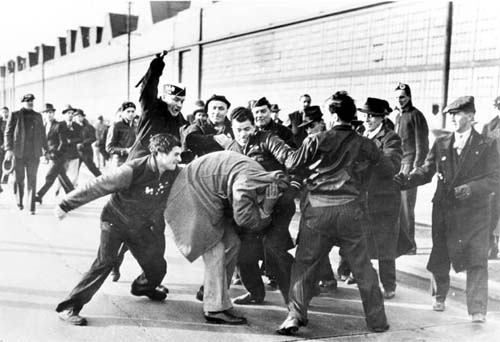

 Williams: We all have these substances coursing through our bodies. Unfortunately, some of them really collect in fatty tissue in the breast. And then the breast is really masterful at converting these substances into food. So it ends up in our breast milk. But I would point out that I did continue breastfeeding. I was convinced that the benefits still outweighed the risks. And, of course, formula is not a completely pure product either. It’s also contaminated with heavy metals and pesticides and whatever else is in the water that you’re mixing it with. And then, you know, of course there are sometimes these
Williams: We all have these substances coursing through our bodies. Unfortunately, some of them really collect in fatty tissue in the breast. And then the breast is really masterful at converting these substances into food. So it ends up in our breast milk. But I would point out that I did continue breastfeeding. I was convinced that the benefits still outweighed the risks. And, of course, formula is not a completely pure product either. It’s also contaminated with heavy metals and pesticides and whatever else is in the water that you’re mixing it with. And then, you know, of course there are sometimes these 
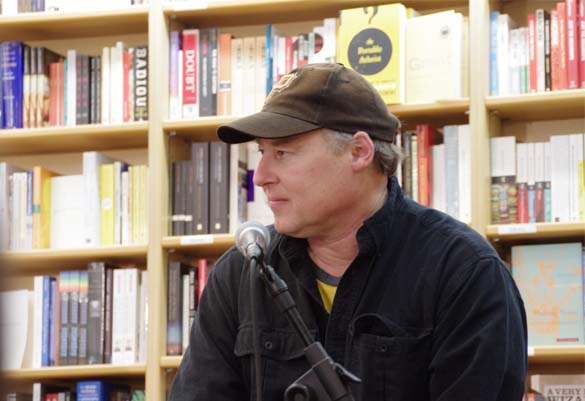
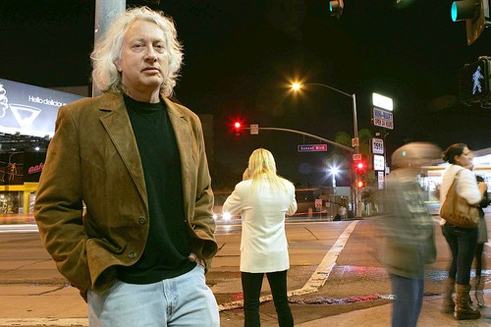



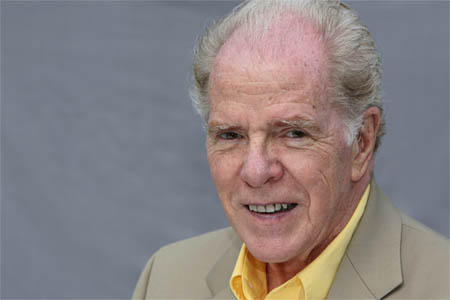
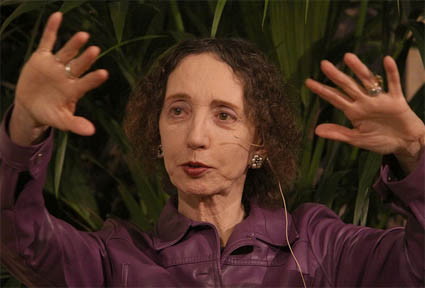


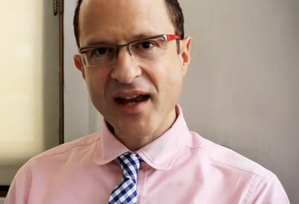
 Correspondent: Well, let me try to get on this from another angle. You had mentioned very early on — and I was actually going to bring this up too — the photos that Annie Leibovitz took of Susan Sontag. The Osama bin Laden execution.
Correspondent: Well, let me try to get on this from another angle. You had mentioned very early on — and I was actually going to bring this up too — the photos that Annie Leibovitz took of Susan Sontag. The Osama bin Laden execution. 



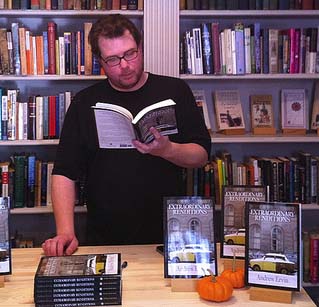


 Mitchell: I think of words as vehicles that convey what is in my imagination into someone else’s. And we’re sort of in a dialogue. Because they don’t just replicate what’s in the imagination. They can alter it. You can mistype and you get a word that actually can be better than the one you meant. Words can feed back and suggest to the imagination, “Well, would it be neater if you imagine this instead?” Language itself is a kind of a writing partner, separate to the writer, who is deploying the language. I think. I think this is true. Has that answered your question?
Mitchell: I think of words as vehicles that convey what is in my imagination into someone else’s. And we’re sort of in a dialogue. Because they don’t just replicate what’s in the imagination. They can alter it. You can mistype and you get a word that actually can be better than the one you meant. Words can feed back and suggest to the imagination, “Well, would it be neater if you imagine this instead?” Language itself is a kind of a writing partner, separate to the writer, who is deploying the language. I think. I think this is true. Has that answered your question?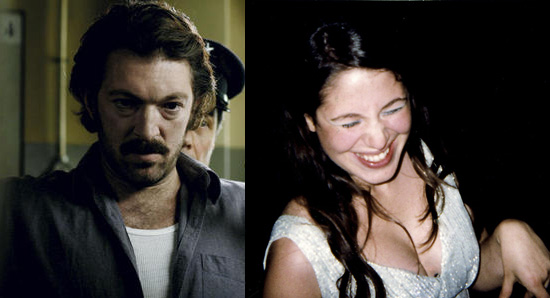
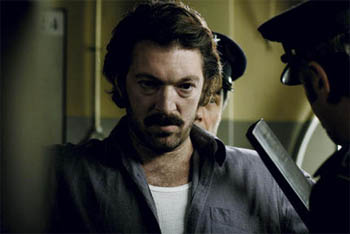 Correspodnent: Does movement offer a more creative place to establish a character? More so than the backstory, research, or anything?
Correspodnent: Does movement offer a more creative place to establish a character? More so than the backstory, research, or anything? Correspondent: You note of [your future husband] Ben that, as you watched him calmly rub soap into his hands by the communal sink, you realized that you had known all along that you would see him again. I’m wondering what it is about hand hygiene that serves as your personal madeleine.
Correspondent: You note of [your future husband] Ben that, as you watched him calmly rub soap into his hands by the communal sink, you realized that you had known all along that you would see him again. I’m wondering what it is about hand hygiene that serves as your personal madeleine.



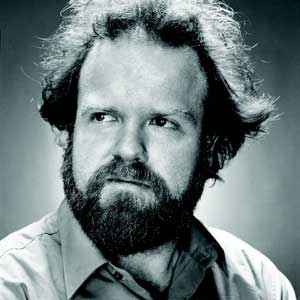
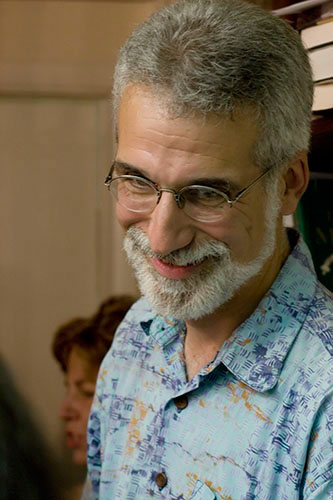
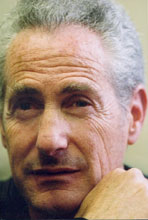
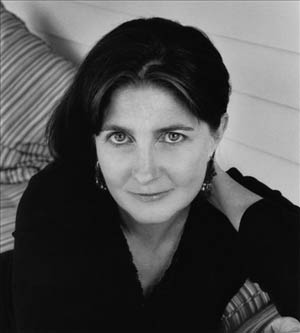


 Correspondent: I actually wanted to ask you of your keen interest in the Muppets.
Correspondent: I actually wanted to ask you of your keen interest in the Muppets.